Currently reading
Washington Confidential
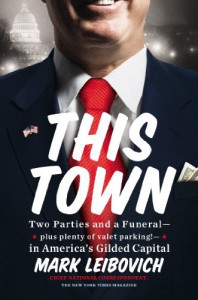
Leibovich describes Twitter as one giant Larry King USA Today column--which, having enjoyed the surreal soup of bon sequiturs that was King's column.... is just about a perfect analogy.
The book is full of snark, and its gossipy tone isn't really offset by its self-loathing about gossipiness. Yet every page or so there's a revelation, or an incisive observation, or just a funny smart line (one woman is a "human ladle" at the self-satisfaction buffet).
Not quite up to the standards of Richard Ben Cramer's What It Takes, but what is? (Lord knows the Halperin and other guy books on the last two Presidential campaigns were nowhere near that quality. Leibovich, on the other hand, is pretty damn close.). Excellent reporting. But meta-gossip is still gossip.
 1
1
Investigation versus interpretation

http://www.bookgasm.com/reviews/thrillers/the-murder-code/
It is always a kick to happen upon a writer who dazzles you, and then to realize s/he has a full back catalog to dig into...
 3
3
 2
2
No Roy Scheider, but still good
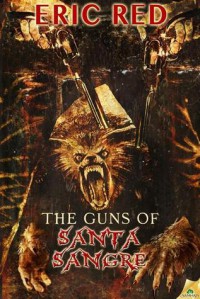
Full review at ://www.bookgasm.com/reviews/horror/the-guns-of-santa-sangre/">Bookgasm:
Eric Red kicked in the doors and smacked me around in the mid-1980s. His scripts for NEAR DARK and, in particular, THE HITCHER were the stuff of geek dreams. His writing had precision-tooled, B-movie mechanics and plots built with a merciless, gleeful desire to give the people what they want in ways that surprised us.
.....
I’ve kept up with his film work, but I had no idea he’s been producing horror and other pulp fictions on the page for some time, too. Samhain Publishing now releases a short novel that displays a characteristic panache.
.....
 2
2
Wait--where's the turkey?
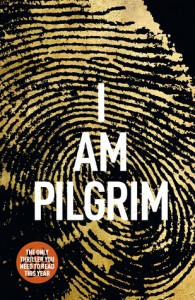
After getting over my surprise that this wasn't about the first Thanksgiving, I found my way into this thick, slick post-9/11 thriller.
I'm hesitant to give too much away. I wouldn't say there were "surprises" as much as a restless ambition. Hayes has 700 pages to play with, and he rather masterfully weaves in countless sidetracks (that aren't all as sidewise as they first seem), an openness to backstory--particularly the rich stews of motivation for his two central characters. A good percentage of the pleasures in this novel--and it's a real pleasure to read--are in the dialectic of excitement and frustration Hayes produces every time he slides off the central plotline. (Oh god, but we need to know what's going to happen .... but, holy cow, that's interesting in its own right...) The book keeps playing with your expectations, and your nerves, and that's a blast.
Tl;dr tagline: A supersecret American intelligence operative is pulled back into action by the threat from a supersecret anti-Western terror threat. The book resembles most Forsyth's Day of the Jackal, with a rewrite by Scott Turow --
Cautions: it's long. Some of the melodrama is... well, melodramatic. Having read a lot of 9/11 (and other) thrillers, a few of the stations of the cross were a bit too familiar, particularly the equally-frustrating tendencies to fall into tough-guy oneliners or maudlin 9/11 trauma-nostalgia. And it's long.
But these are minor cautions, like recognizing that there are long lines and the food isn't awesome but it is still a great damn amusement park. Suspenseful, smart, and involving.
 4
4
A long walk

Full post at http://www.bookgasm.com/reviews/horror/the-dead-run/
“Are you familiar with the legend of the Virgin Army, Sheriff?”
Nichols stifled a laugh. “Yeah, sure. Undead virgins buried in the desert, right? They rise and feed on human flesh when there’s–what is it again? A full moon? An eclipse? Nothing good on TV?”
The best thing about Adam Mansbach’s THE DEAD RUN is that you are not familiar with the legend of the Virgin Army. Or probably any of the meso-American shenanigans threaded through this high-octane homage to cult movies.
.... [SNIP]
Maybe I’m humorless, but despite some neat gee-whiz details in the content of its plot (that undead Virgin Army), THE DEAD RUN felt to me more like a long walk.
 1
1
The Breakfast Clubs You to Death

Hm. Some sharp bits--as karen says, there's a Game-of-Thronesy willingness to heap abuse upon or nastily dispatch major characters. I think I'd have loved it at age 13, 'though at age *cough cough mumble* I found it a bit overstuffed with adolescents, as much John Hughes as John Carpenter. And I never really liked John Hughes. Still, that nasty edge provides some real thrills.
Full review at Bookgasm.
The first 31 pages of Robin Wasserman’s THE WAKING DARK are a punch in the gut. We’re immediately immersed in terrible mayhem. A gunman opens fire in a drugstore, and attention centers on Daniel Ghent, who manages to survive.
His terror is ours: the startled recognition of what’s happening, the flash of memory of so many mass shootings, the nausea at seeing friends and neighbors taken down, the nausea and guilt and fear about surviving when all around you haven’t. That scene of mass homicide is written without sensation (or without lurid, hepped-up prose — the situation is more than sensational enough).
 3
3

Hm. Some sharp bits--as karen says, there's a Game-of-Thronesy willingness to heap abuse upon or nastily dispatch major characters. I think I'd have loved it at age 13, 'though at age *cough cough mumble* I found it a bit overstuffed with adolescents, as much John Hughes as John Carpenter. And I never really liked John Hughes. Still, that nasty edge provides some real thrills.
Full review at <a href="http://www.bookgasm.com/reviews/horror/the-waking-dark/">Bookgasm</a>.
The first 31 pages of Robin Wasserman’s THE WAKING DARK are a punch in the gut. We’re immediately immersed in terrible mayhem. A gunman opens fire in a drugstore, and attention centers on Daniel Ghent, who manages to survive.
His terror is ours: the startled recognition of what’s happening, the flash of memory of so many mass shootings, the nausea at seeing friends and neighbors taken down, the nausea and guilt and fear about surviving when all around you haven’t. That scene of mass homicide is written without sensation (or without lurid, hepped-up prose — the situation is more than sensational enough).

THIS IS MANNY RAYNER'S REVIEW THAT HAS NOW BEEN DELETED FROM GOODREADS. I'm using his template to examine this particular book, because I believe book reviews should be about the book.

In the shower just now, I suddenly had a Eureka moment. The aspect of this current censorship war that's been upsetting us most is the feeling of powerlessless. Goodreads can arbitrarily change the rules, and they hardly even bother to respond when we complain. But we are not powerless. There are twenty million of us, and only a few dozen of them. We just need to get a little more organized, and we can easily resist.
But as David Marx suggests, we can rethink accountability, and our perceptions of--and responses to--"wrong-doing."
So here's one concrete way to do it, based on the legend of Hercules. You will recall that Hercules had a difficult time against the Lernean Hydra; every time he cut off one of its heads, ten more grew back. We can do the same thing if we adopt the following plan:
1. Back up all your reviews, so that you have a copy of everything you have posted.
2. If you think that one of your reviews has been unreasonably deleted by Goodreads, repost it with an image of the Hydra at the top.
3. If you see someone else posting a Hydra review, make a copy of it and post it yourself.
We can improve this basic scheme with a little thought; for example, it would be better to have a place where we keep HTML marked-up source of reviews, so that they can immediately be reposted with the same formatting, and we need a plan for duplicating deleted shelves. But we can sort that out later. Without getting too bogged down in the details, I'm sure you see what will happen. The net result of Goodreads unreasonably deleting a review will be that it immediately comes back in many different places.
As David Marx suggests, imperfection--or negativity, or mean no-good bullying reviews--can not be stamped out by aggressive attempts to whack every instance of same; we don't make a better community by deleting wherever we think there is a "violation" of the community expectations. We're far better off, as David Marx argues, recalibrating how we engage such negativity, such imperfections, such reviews.
People who know their Greek mythology will be aware that Hercules did in fact defeat the Hydra, and Goodreads can use the same method if they dare; they can close down the account of anyone who participates in the scheme. That will work, but I am not sure that anything less drastic will be effective. I think Goodreads will be reluctant to escalate to this level. A large proportion of the most active reviewers are now part of the protest movement, and they would be losing much of the content that makes the site valuable. Even more to the point, the media have already started to get interested (maybe you saw the article in the Washington Post). They would love the story, and it would create a mountain of bad publicity for Goodreads and Amazon.
I'd say the odds are heavily in our favor. Why don't we try it? I promise now to respond to any Hydra calls.
Thanks to Manny for this review (RIP!), and to David Marx for these ideas.
~~~~
Irony (The New Critical Idiom)
 I think Goodreads' new policy regarding book reviews needing to be about the book makes wonderful sense.
I think Goodreads' new policy regarding book reviews needing to be about the book makes wonderful sense.
 Hm. Some sharp bits--as karen says, there's a Game-of-Thronesy willingness to heap abuse upon or nastily dispatch major characters. I think I'd have loved it at age 13, 'though at age *cough cough mumble* I found it a bit overstuffed with adolescents, as much John Hughes as John Carpenter. And I never really liked John Hughes. Still, that nasty edge provides some real thrills.
Hm. Some sharp bits--as karen says, there's a Game-of-Thronesy willingness to heap abuse upon or nastily dispatch major characters. I think I'd have loved it at age 13, 'though at age *cough cough mumble* I found it a bit overstuffed with adolescents, as much John Hughes as John Carpenter. And I never really liked John Hughes. Still, that nasty edge provides some real thrills. 1
1





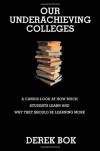


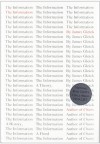








 1
1

